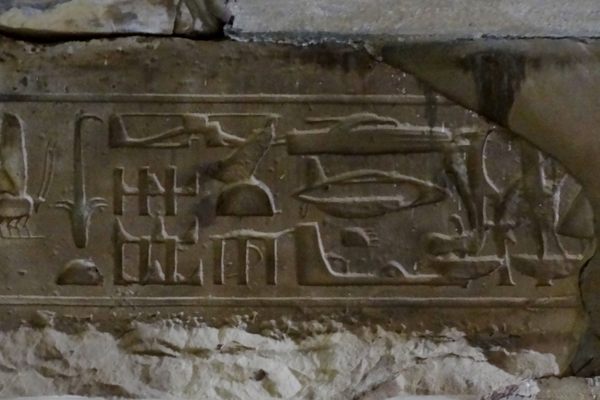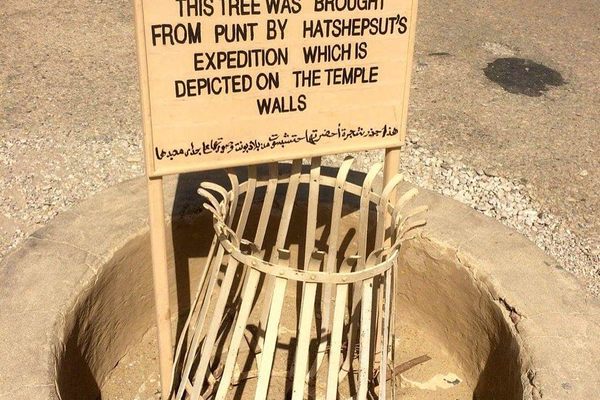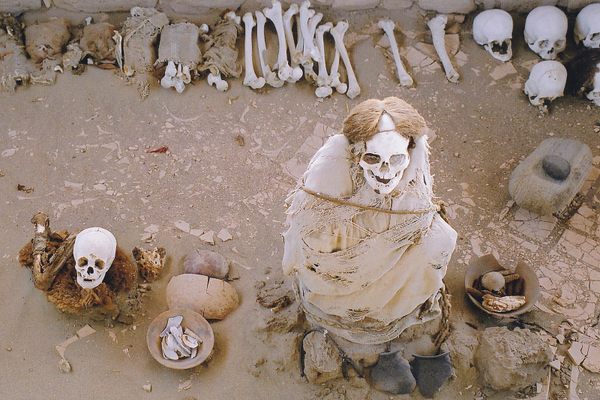The ancient tombs of Petosiris and Sadosiris, which were discovered in 1972, used to be the star attraction of the Muzawaka necropolis. But too much fresh air and humidity from the breath of the visitors have threatened the state of the colourful frescoes inside the mausolea, and the tombs have been closed for several years.
Locals can nevertheless make a visit to the burial site worthwhile (perhaps even more worthwhile), since they can guide visitors to several open rock-cut tombs which are literally littered with various mummified corpses.
In every other country these mummies would probably be proudly displayed at a museum, but given Egypt’s over-abundance of mummies, the Muzawaka corpses have been categorized as being of no significant value to archaeologists and have been left in situ.
While many of the rock-cut tombs contain mummified corpses, others hold skeletal remains or wildly strewn bones, probably because these corpses may have been dug up by wild animals. Skeletal remains and bones can also be found littering the mountainside of the tabletop mountain, where the necropolis is located.
The mummies date from the Roman period in Egypt and are mostly clustered in family tombs. They belonged to non-wealthy residents, hence the undecorated interior of their tomb chambers.
It is one of Egypt’s most macabre “tourist sights,” and one of the very few places in the world where non-scientists have the possibility of getting so close to mummies in their original resting places that they can even touch them.
Know Before You Go
Between Deir al-Hagar and al-Qasr; Dakhla Oasis; New Valley Governorate; Egypt

















Follow us on Twitter to get the latest on the world's hidden wonders.
Like us on Facebook to get the latest on the world's hidden wonders.
Follow us on Twitter Like us on Facebook